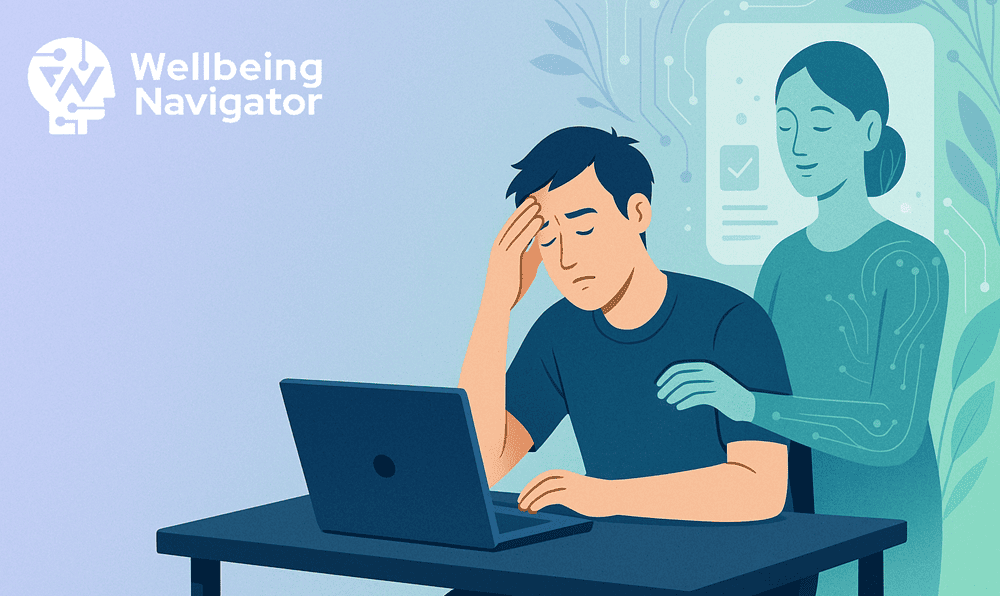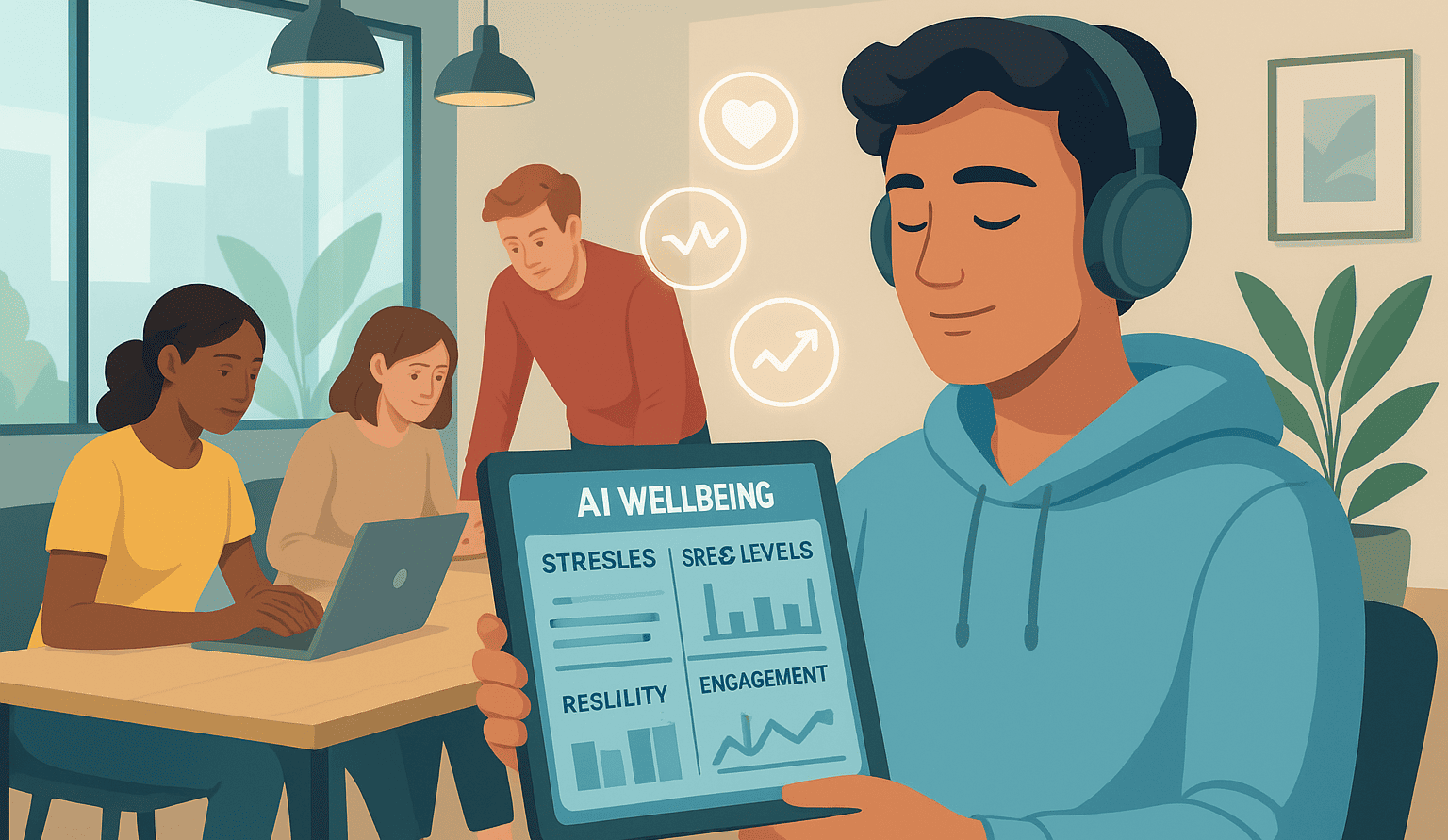Every generation reshapes the workplace, but none has done so quite like Gen Z. Born between the mid-1990s and early 2010s, these digital natives now make up nearly 30% of the global workforce. They bring fresh perspectives on diversity, technology, and work-life balance. At the same time, they face higher stress levels, rising mental health challenges, and shifting career expectations. Addressing Gen Z wellbeing is not just an HR concern, it is a business priority that directly influences retention, engagement, and long-term organizational success.
For business leaders, the question is clear: how can companies support this new workforce while building resilience, reducing turnover, and creating workplaces where young employees thrive?
Why Gen Z Wellbeing Matters More Than Ever
Surveys consistently show that Gen Z reports higher levels of stress and anxiety compared to older generations at work. According to a 2024 Deloitte study, nearly 46% of Gen Z workers feel stressed or anxious most of the time at work, citing financial pressures, job insecurity, and overwhelming workloads. Unlike previous generations, Gen Z expects employers to prioritize mental health, not treat it as an afterthought.
Ignoring these expectations comes at a cost. High workplace stress leads to increased absenteeism, higher turnover, and lower productivity. On the flip side, organizations that actively invest in AI for young employees and holistic wellbeing strategies are better positioned to retain top talent.
Unique Challenges Facing Gen Z in the Workplace
1. The Always-On Digital Lifestyle
Gen Z grew up with smartphones, social media, and constant connectivity. While this makes them tech-savvy, it also means they struggle with digital fatigue. The blurred lines between work and personal life add to stress and burnout.
2. Financial and Career Anxiety
Many Gen Z professionals entered the job market during economic uncertainty. Concerns about job stability, debt, and rising living costs amplify workplace stress.
3. High Expectations for Employers
This generation is values-driven. They expect inclusivity, mental health resources, and career development support. Companies that fail to meet these expectations risk losing employees to more supportive workplaces.
4. Limited Coping Strategies
Unlike older employees who may have developed stronger resilience through experience, younger workers often lack tested coping skills. That is where Gen Z resilience AI and structured workplace programs can fill the gap.
How AI is Transforming Gen Z Wellbeing Support
Artificial intelligence is reshaping workplace wellness by delivering personalized, real-time solutions. For organizations looking to improve Gen Z wellbeing, AI tools offer scalable and effective support.
AI-Powered Coaching
AI mental health companions provide 24/7 coaching tailored to stress management, career challenges, and emotional resilience. Unlike generic programs, AI coaching adapts to individual employee needs and offers confidential support.
Predictive Insights for Leaders
AI can identify early signs of burnout or disengagement by analyzing behavioral data such as meeting load, communication tone, or productivity changes. This allows managers to intervene before issues escalate.
Personalized Wellbeing Programs
AI-driven platforms recommend mindfulness exercises, coping strategies, and wellness challenges based on each employee’s stress profile. This improves engagement with wellness initiatives.
By embedding AI for wellbeing into daily work, companies build stronger trust with younger employees while creating a culture that normalizes mental health conversations.
Workplace Stress in Gen Z: What the Numbers Say
To highlight why organizations must act, here are some recent statistics on workplace stress Gen Z:
| Challenge | Impact on Gen Z | Business Risk |
|---|---|---|
| 70% report burnout by age 25 | Declining productivity, early career exits | High turnover |
| 46% say they feel stressed most of the time | Reduced engagement | Increased absenteeism |
| 60% want better wellbeing benefits | Retention risk | Talent drain to competitors |
These numbers make it clear: investing in employee wellbeing solutions tailored to Gen Z is both a moral responsibility and a business advantage.
Strategies for Supporting Gen Z Wellbeing

1. Create a Wellbeing-First Culture
Mental health support should not be an optional perk, it should be part of company culture. Leaders must communicate openly about stress, resilience, and work-life balance.
2. Offer Flexible Support with AI Tools
AI tools can deliver stress management AI programs that meet Gen Z where they are: on mobile apps, wearable devices, and chat platforms. These tools provide anonymity, which is especially important for younger workers who may hesitate to approach HR directly.
3. Build Resilience Through Coaching
Providing AI coaching for stress, workload management, and personal growth strengthens Gen Z employees’ ability to adapt to challenges. This creates a pipeline of future leaders who are emotionally strong.
4. Support Digital Natives with Digital Wellbeing
Since Gen Z is highly digital, employers must actively address screen fatigue. Encourage mindful tech use, structured breaks, and wellbeing practices integrated into workflow.
5. Connect Wellbeing with Career Growth
For Gen Z, wellbeing and career success go hand in hand. Linking workplace wellness platform benefits with skill development, mentorship, and growth opportunities makes wellbeing feel less like a side program and more like an integrated career path.
Business Benefits of Prioritizing Gen Z Wellbeing
Investing in Gen Z wellbeing delivers measurable returns.
- Retention through wellbeing – Organizations that support employee mental health are 3.5x more likely to retain young talent.
- Reducing absenteeism – Proactive support reduces sick days, saving costs and improving performance.
- Improved onboarding – A strong focus on wellbeing enhances the employee onboarding experience, helping new hires integrate smoothly.
- Sustained engagement – Wellbeing initiatives drive loyalty and motivation, especially among digital natives.
Case Example: AI Coaching for Young Professionals
A mid-sized tech firm introduced AI coaching employee success programs for new hires, focusing on stress management, resilience training, and mindfulness. Within a year, turnover among Gen Z employees dropped by 25%, and engagement survey scores rose significantly. Employees reported feeling heard, supported, and more confident about their long-term career path.
This shows that combining workplace stress coaching with AI personalization is not only feasible but also impactful.
Practical Steps for Leaders
- Assess Needs – Run surveys to identify stress triggers among young employees.
- Deploy AI Tools – Integrate an AI for wellbeing system that offers coaching, insights, and personalized support.
- Train Managers – Equip leaders to recognize early signs of burnout and direct employees to support systems.
- Measure Progress – Use retention, absenteeism, and engagement metrics to evaluate effectiveness.
- Iterate Continuously – Adapt programs as Gen Z workforce needs evolve.
Conclusion
The arrival of Gen Z in the workplace is reshaping how organizations think about wellbeing. These young professionals expect employers to acknowledge mental health as central to career success. By adopting employee wellbeing solutions, building a culture of openness, and using AI for young employees, organizations can reduce stress, boost resilience, and retain their future leaders.
Supporting Gen Z wellbeing is not only about responding to immediate challenges, it is about building a healthier, more sustainable workforce for decades to come.





